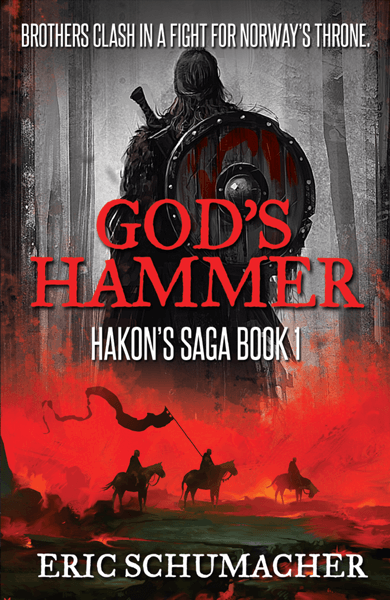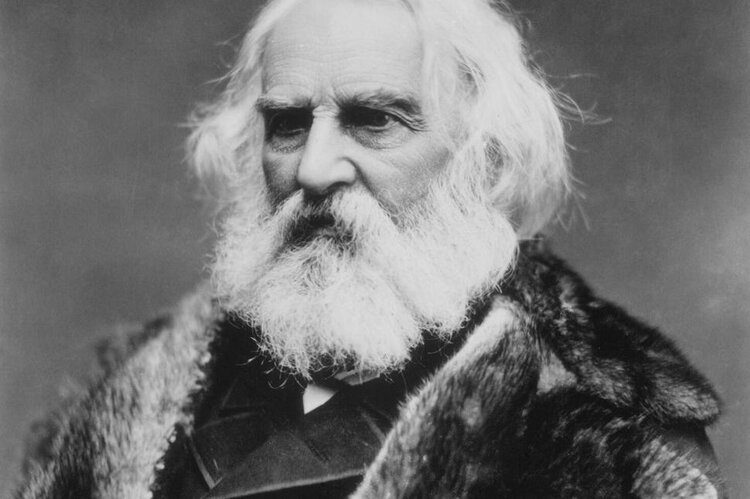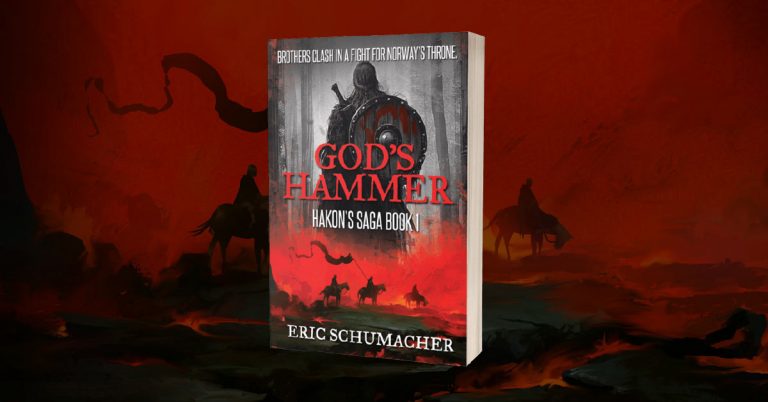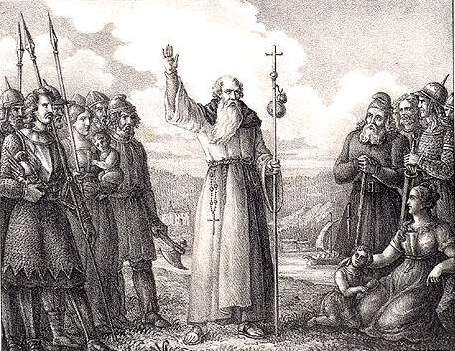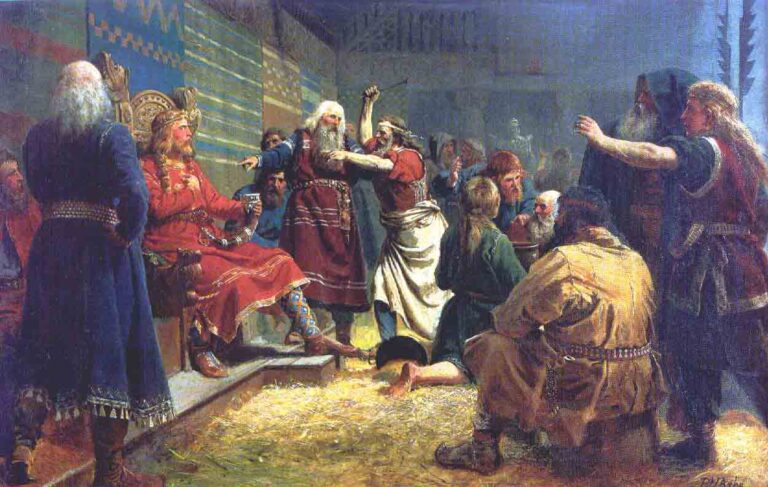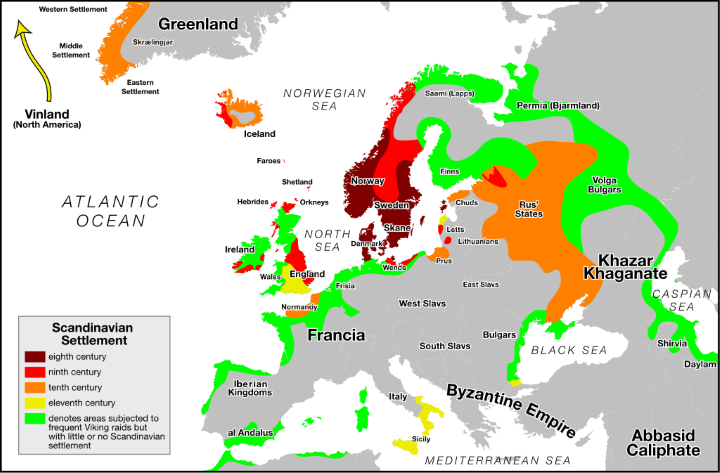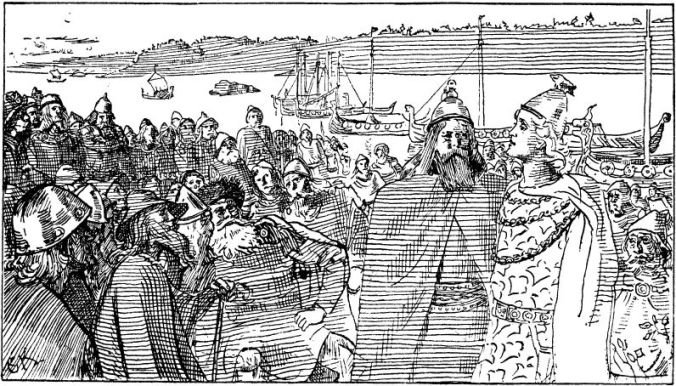Personally, I think one of the most difficult judgment calls in writing historical fiction is the handling of names and place names, especially when dealing with time periods where written resources are scarce. Scandinavia during the Viking Age is one of those times.
Old Norse is an especially challenging language for the modern reader. As a writer, I want to be as true to those ancient words as possible. Yet I don’t want to bog the reader down. It is a delicate balance. To me, there are few things worse than getting lost in some great passage only to stumble across an ancient word that is difficult to pronounce. Take, for instance, the place name “Þrœndalǫg”. It is one of the main settings in God’s Hammer, but how many readers are able to decipher it? At least most readers can get their tongues around “Trondelag”, which is a modern version of that same place.
Then there is the issue of use, or more precisely, which ancient place name or name to use. Different historical resources quite often spell the name of the same person or place differently, depending on the time period, the perspective of the writer, and so forth. Take, for example, today’s York. Romans called it Eboracum, but the Anglo-Saxons called it Eoforwic. Danes and Northmen called it Jórvík. The main character in my first series is named Hakon. In ancient texts, his name appears as Hakon, Hacon, Haakon, Hákon, and so forth, depending on the source. Not only must the writer of historical fiction make a judgment as to which one is more correct, but also which one might have been used at certain points in history and by whom?
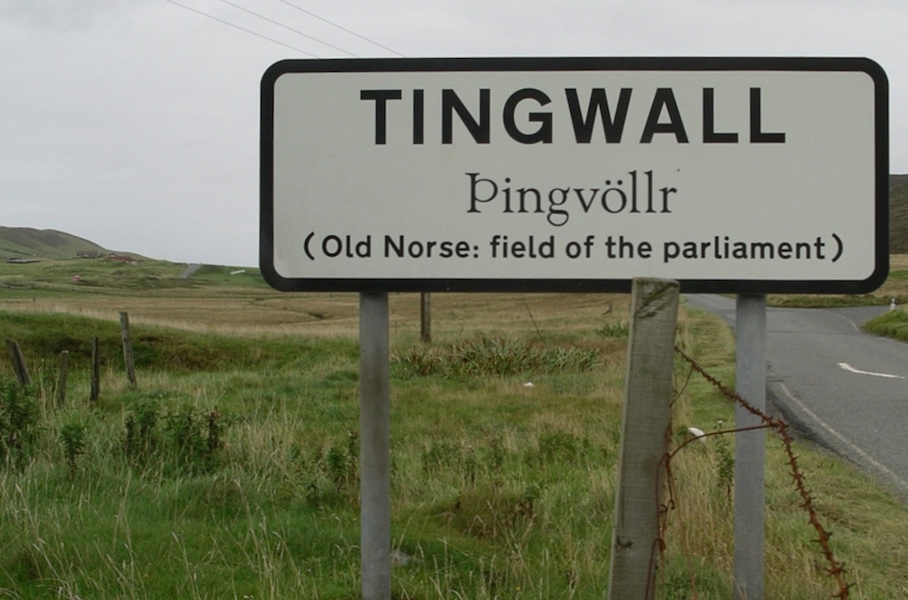
Should the place name even appear?
As mentioned, there is also the problem of exactly when a name appears in history and whether it should be used in a story. “Norway” is a prime example. Scholars are relatively certain that the idea of a single country called “Norway” did not exist in the early AD 900s. What did exist were smaller kingdoms, or folklands (fylker), that would eventually coalesce into a single country. At what point in history did the word Norway appear in reference to a single country rather than the North Way, a reference to the sailing passage along its western coast? Sometimes, the author must determine whether or not to use names in order to make the story more understandable, even if they are historically inaccurate.
Early on, I decided to adhere to a few rules. First, the name should not tear the reader from the story. Second, it needed to be a close approximation to the ancient name. And third, it needed to be as historically accurate as possible. Hence, Þrœndalǫg became Trondelag, and Hlaðir became Lade. I chose “Hakon” because I wanted his name to be pronounced with a soft “a” and a hard “k”. I do not use the name “Norway” even though it would be easier to understand.
I realize that to some readers, adherence to the ancient names is important. My hope is that those readers will find my solutions acceptable nonetheless.
